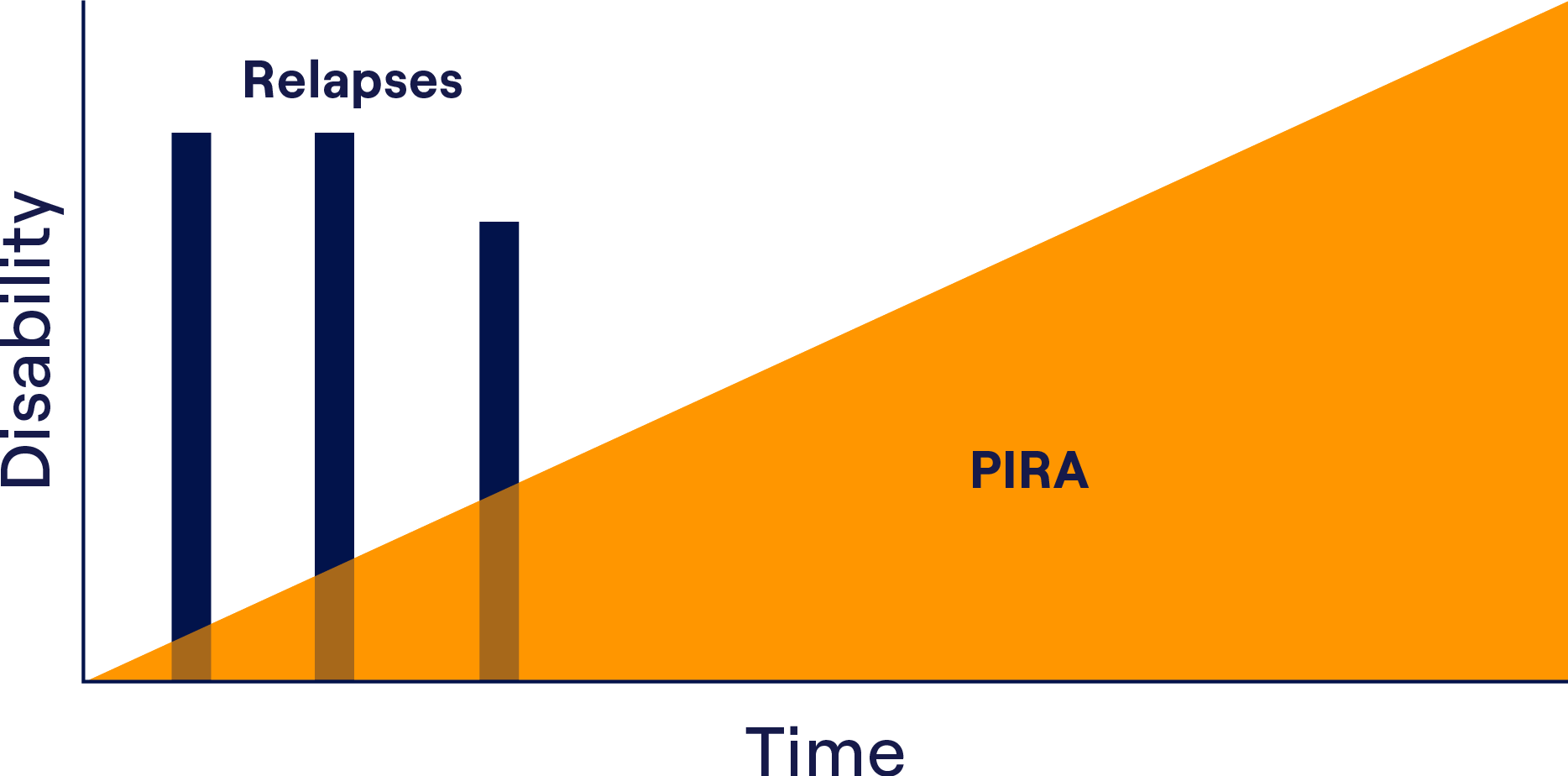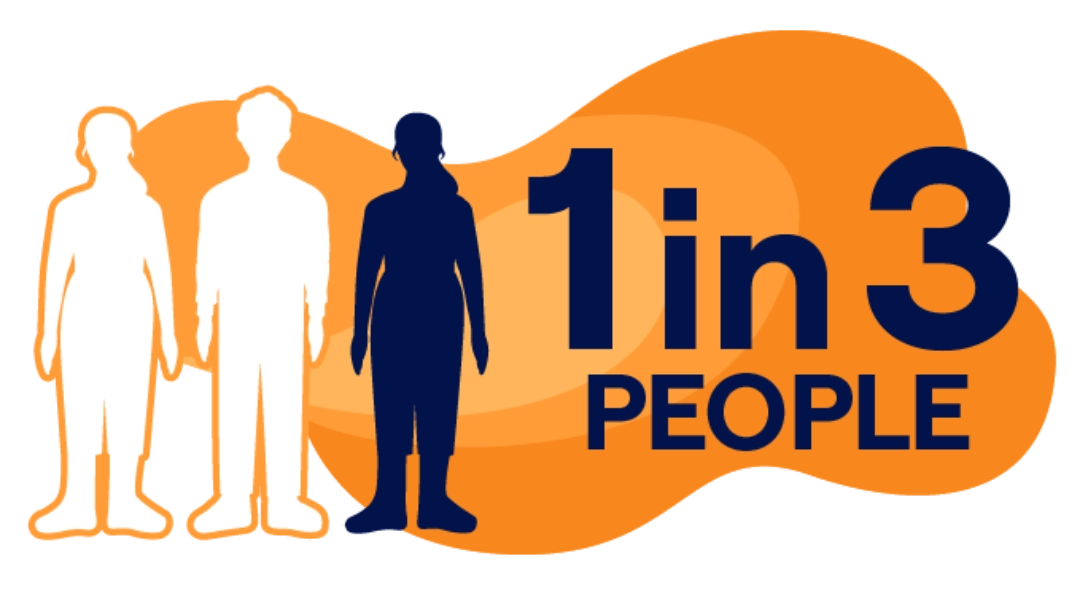Types of MS
The symptoms of MS can vary from person to person. For some people living with MS, their symptom progression can be fast, while for others it could be slower or it might not seem to progress much at all. If you're living with MS, it's natural to worry about your MS changing. Know that you are not alone.
How MS changes over time
Understanding the type of MS you have can help you and your doctor have an informed discussion so you can address your changing needs. To understand which type of MS you have, it helps to first learn how MS can change over time.
As MS progresses, relapses can happen less frequently, but disability can steadily build up over time. This is called progression independent of relapse activity (PIRA)As MS progresses, relapses can happen less frequently, but disability can still steadily build up over time..
No matter what type of MS you have been diagnosed with, you can experience PIRA. This is because there are 2 disease processes that cause MS symptoms.

The acute process leads to relapses and magnetic resonance imaging (MRI) activity.

The chronic smoldering process leads to disability progression without relapses.
Even when the acute process is controlled, PIRA can still happen due to the chronic smoldering process, and it can have an impact on your day-to-day abilities.
It's important to recognize if symptoms are affecting you more now than they were a year ago—including in the way you think, talk, or walk—because it can help you understand if your MS is changing. Learn more about the signs of MS progression.
“I walked my daughter down the aisle at her wedding May of last year. I can’t do the same now.”
—Male, United States
The different types of MS
Even though everyone’s experience with MS is unique, about 85% of people living with MS are initially diagnosed with relapsing MS (RMS)This type of MS means having symptom flares, known as relapses, followed by periods of recovery, known as remission. After a relapse, some people may not fully recover, which can lead to disability progression.. This type of MS means having symptom flares, known as relapses, followed by periods of recovery, known as remission. After a relapse, some people may not fully recover, which can lead to some disability progression, referred to as relapse-associated disability progression. Thankfully, today’s MS treatments are very effective at controlling these relapses and MRI activity caused by the acute process.
Many people with RMS will go on to develop secondary progressive MS (SPMS)A type of MS in which disability can increase regardless of relapses or changes in MRI activity.. In SPMS, disability can increase regardless of relapses or changes in MRI activity. In non-relapsing SPMS (nrSPMS)A type of secondary progressive MS (SPMS) in which there are no relapses, but progression independent of relapse activity (PIRA) is still happening, so disability can get worse., also known as non-active SPMS (naSPMS), this disease progresses steadily without relapses.
People with SPMS, including non-relapsing or non-active, can experience worsening symptoms like muscle weakness, balance issues, bladder issues, and brain fog. These changing symptoms are a sign of PIRA happening. In non-relapsing or non-active SPMS, disability progression is mostly caused by the chronic smoldering processA process that happens only in the brain and is ongoing from the start of MS. This process slowly causes damage that results in disability progression. Also known as: compartmentalized inflammation, chronic progressive process, smoldering MS, smoldering neuroinflammation., which begins at the start of MS.
If you're experiencing progression and think you might be transitioning to SPMS, you are not alone: about 1 in 3 people being treated for RMS will transition to SPMS. It's normal to worry about your MS changing, but having SPMS doesn't mean you will definitely experience severe disability. The thinking around SPMS has evolved, and new advances in science are changing the outlook for people who are living with it.
There is also a type of MS called primary progressive MS (PPMS)A type of MS in which people experience disability that steadily gets worse over time, but with few or no relapses even at the very beginning of their MS journey instead of later on.. People with PPMS experience disability that steadily gets worse over time, but with few or no relapses even at the very beginning of their MS journey.
What you do today can make a difference: identifying if you are experiencing progression without relapses can help you and your doctor better care for your MS.
Are you noticing changes in your abilities even without a recent relapse?
You know your body best, so you shouldn't doubt yourself. It may mean your MS is changing.



